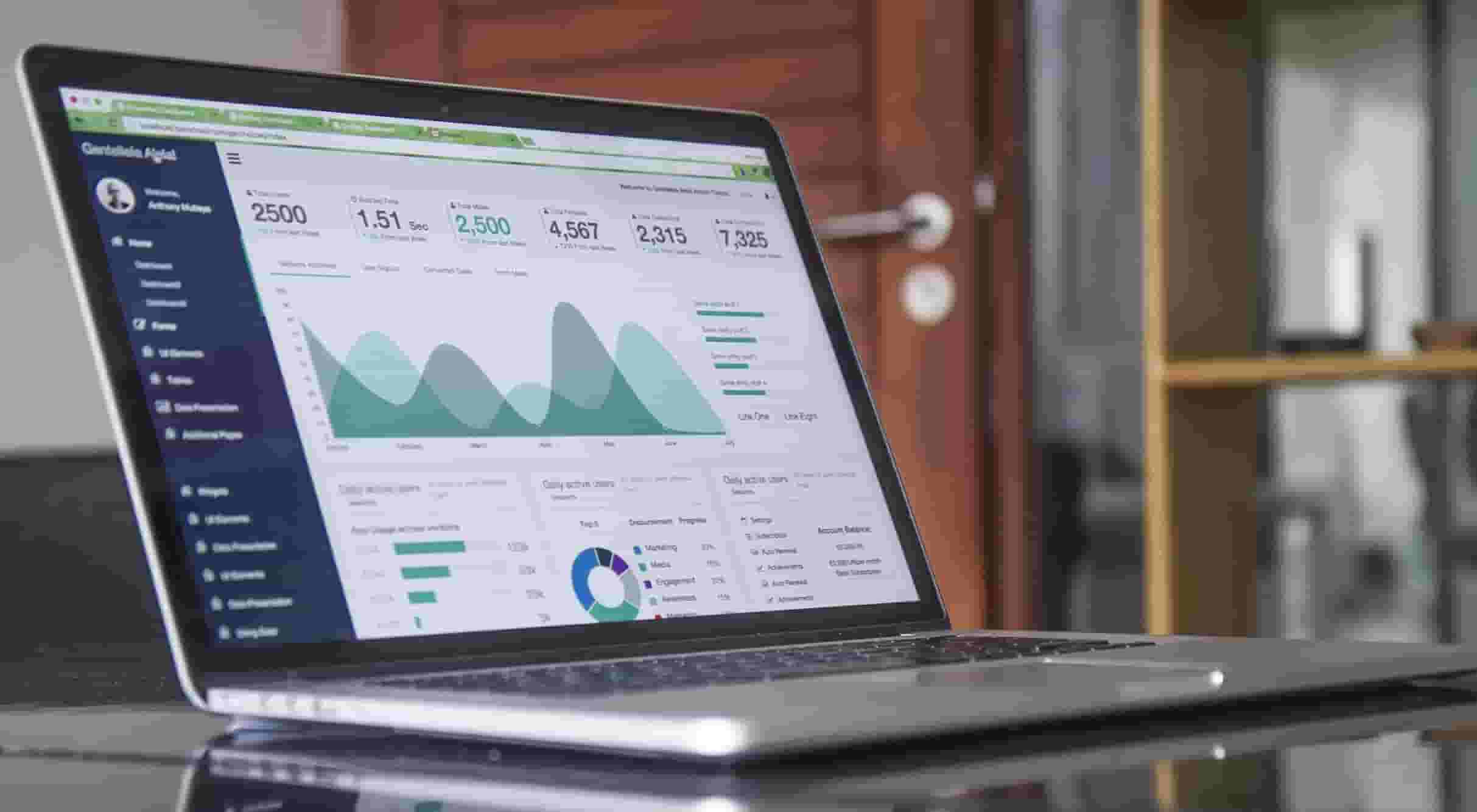MTN Consulting is focused on network operators & their technology supply chains, tracking the economics of the network operator business and assessing the big shifts that impact technology spending trends. Our coverage includes:
3 major network operator markets
- Telecom Network Operator (TNO)
- Webscale Network Operator (WNO)
- Carrier-Neutral Network Operator (CNNO)
190+ operators
Across the three major network operator markets in all key regions
40+ time series
10+ years’ market- and operator-wise data across quarters and years starting 2011
~50 reports published per year
- Market data and insight reports spanning –
- quarterly market reviews
- operator and vendor deep dives
- benchmarking and strategic assessments
- forecast/outlook analysis

Latest report
Greener networks: Telcos power up traffic efficiency
In late 2023, MTN Consulting published an initial review of the relationship between traffic growth and energy consumption in telco networks. That review included data for 16 telcos, and focused on 2020-22 data. This updated analysis extends coverage to 30 telcos, and adds two years (2019 and 2023) of data. Our analysis now addresses the 2019-23 timeframe. The group of 30 telcos included in this analysis represent about 55% of the global market, based on revenues. Our data verify the well-known revenue-traffic conundrum, where traffic rises faster than revenues: in 2023, the average telco carried 2.06 Petabytes of traffic per US$1M in revenue, over double the 1.00 Petabytes per $M carried in 2019. This is possible because telcos make constant improvements aimed at carrying traffic more cheaply. Energy is a big part of the cost story. So, are networks getting more efficient in their carriage of traffic per unit of energy consumed? In the 2019-23 timeframe, our group of 30 telcos increased network traffic at an average annual rate (CAGR) of 19.7%, while their total energy consumption grew at a CAGR of 2.8%. As a result, in 2023 the average telco consumed 90.0 MWh of energy per Petabyte of traffic, down from 165.5 MWh/PB in 2019. That works out to an annual average (CAGR) improvement in MWh per Petabyte of 14.1%. Meaning, on average, telcos need 14.1% less energy per year to carry the same traffic load as the prior year. This improvement is in line with the stated goal of both telcos and their vendors: to improve the network’s energy efficiency over time. The biggest improvements in the MWh/Petabyte metric since 2019 are BT, Entel, Rogers, Tele2, and Veon. The worst result came from Saudi Telecom (STC), which used 104 MWh/PB in 2023, from 90 in 2019. The poorest result in 2023 alone was reported by Vodafone, which improved (lowered) its MWh/PB ratio by just 3.8% YoY. For climate change watchers, an important metric is greenhouse gas emissions (GHG), as measured in CO2 equivalent metric tons. We don’t address emissions in this report, but we did in a December 2024 report. That report found that telco emissions in 2023 were about the same level (per unit of revenue) as in 2019, and that renewables accounted for only about 20% of energy used in 2023. Both findings were disappointing. So, this current report’s conclusion is a welcome bit of good news. Telco sustainability reports emphasize the importance of adopting energy efficient technologies and network designs. Vendors consider the energy efficiency of their solutions a crucial differentiator. As telcos attempt to lower energy costs and reduce their carbon footprints, vendors have an opportunity to support further improvements.
Latest reports
- March 25, 2025 Greener networks: Telcos power up traffic efficiency
- March 20, 2025 Webscale Market Review, 4Q24: Annual capex breaks the $300B mark
- February 6, 2025 Vendor sustainability: Ciena leads the green charge among NEPs; chip, fiber, and Chinese vendors lag
- February 5, 2025 Telecom’s biggest vendors – 3Q24 edition
- January 16, 2025 Telecommunications Network Operators: 3Q24 Market Review


MTN Consulting is focused on network operators & their technology supply chains, tracking the economics of the network operator business and assessing the big shifts that impact technology spending trends. Our coverage includes:
- 3 major network operator markets
- 190+ operators
- 40+ time series
- 50 reports published per year
Latest report
Greener networks: Telcos power up traffic efficiency
In late 2023, MTN Consulting published an initial review of the relationship between traffic growth and energy consumption in telco networks. That review included data for 16 telcos, and focused on 2020-22 data. This updated analysis extends coverage to 30 telcos, and adds two years (2019 and 2023) of data. Our analysis now addresses the 2019-23 timeframe. The group of 30 telcos included in this analysis represent about 55% of the global market, based on revenues. Our data verify the well-known revenue-traffic conundrum, where traffic rises faster than revenues: in 2023, the average telco carried 2.06 Petabytes of traffic per US$1M in revenue, over double the 1.00 Petabytes per $M carried in 2019. This is possible because telcos make constant improvements aimed at carrying traffic more cheaply. Energy is a big part of the cost story. So, are networks getting more efficient in their carriage of traffic per unit of energy consumed? In the 2019-23 timeframe, our group of 30 telcos increased network traffic at an average annual rate (CAGR) of 19.7%, while their total energy consumption grew at a CAGR of 2.8%. As a result, in 2023 the average telco consumed 90.0 MWh of energy per Petabyte of traffic, down from 165.5 MWh/PB in 2019. That works out to an annual average (CAGR) improvement in MWh per Petabyte of 14.1%. Meaning, on average, telcos need 14.1% less energy per year to carry the same traffic load as the prior year. This improvement is in line with the stated goal of both telcos and their vendors: to improve the network’s energy efficiency over time. The biggest improvements in the MWh/Petabyte metric since 2019 are BT, Entel, Rogers, Tele2, and Veon. The worst result came from Saudi Telecom (STC), which used 104 MWh/PB in 2023, from 90 in 2019. The poorest result in 2023 alone was reported by Vodafone, which improved (lowered) its MWh/PB ratio by just 3.8% YoY. For climate change watchers, an important metric is greenhouse gas emissions (GHG), as measured in CO2 equivalent metric tons. We don’t address emissions in this report, but we did in a December 2024 report. That report found that telco emissions in 2023 were about the same level (per unit of revenue) as in 2019, and that renewables accounted for only about 20% of energy used in 2023. Both findings were disappointing. So, this current report’s conclusion is a welcome bit of good news. Telco sustainability reports emphasize the importance of adopting energy efficient technologies and network designs. Vendors consider the energy efficiency of their solutions a crucial differentiator. As telcos attempt to lower energy costs and reduce their carbon footprints, vendors have an opportunity to support further improvements.
Latest reports
- March 25, 2025 Greener networks: Telcos power up traffic efficiency
- March 20, 2025 Webscale Market Review, 4Q24: Annual capex breaks the $300B mark
- February 6, 2025 Vendor sustainability: Ciena leads the green charge among NEPs; chip, fiber, and Chinese vendors lag
- February 5, 2025 Telecom’s biggest vendors – 3Q24 edition
- January 16, 2025 Telecommunications Network Operators: 3Q24 Market Review
In The Press
-

-

-

-

April 2024
What lies ahead for India’s Vodafone Idea -

Our Three Core Offerings

Research
MTNC’s research is focused on communications network infrastructure, a market attracting $3.5 trillion in annual operator revenues. Our goal is to provide credible, holistic assessments of where the NI market currently stands and where it is headed. Reports address market and technology trends, key players, and country dynamics.
![2-1[1]](https://www.mtn-c.com/wp-content/uploads/2023/04/2-11.webp)
Subscription
MTNC bundles its research into an annual subscription service called “Global Network Infrastructure”. GNI provides clients with an end-to-end view of the network operator business, assessing the big shifts that impact technology spending trends. GNI clients include technology vendors (chips, network equipment and software, IT services), operators, regulators, and investors.

Consulting
Our consulting services include: scenario planning; market sizing, forecasting, and analysis; organizational strategy; marketing support; competitive benchmarking; and, due diligence support for M&A and PE transactions. We bring experience and independence to the table, and access to the proprietary databases generated by our GNI subscription program.
In The Press
Southeast Asia emerging as the new battleground for cloud service providers
Fierce Network
Hyperscalers gain network infrastructure market share
Inform, TM Forum
Can CSPs realize opex reductions through AI?
Inform, TM Forum
What lies ahead for India’s Vodafone Idea
Fierce Network
SK Telecom’s enduring belief in metaverse spells hope for the technology
Fierce Network
BT confirms Starlink tests as it explores remote connectivity options
Fierce Network
Forecast on Telecoms Capex, Revenue and Business Models
Telecomlead
What does Qualcomm terminating its chip deal with Iridium mean for satellite telecom?
SDxCentral
ZTE stock slides on weaker earnings, falling revenue
LightReading
AT&T, Vodafone, AST hit a 5G satellite milestone
SDxCentral
Amazon, SpaceX extend reach with Vodafone, KDDI satellite deals
SDxCentral
Vodafone expands horizons with Amazon’s Project Kuiper
Fierce Network
Blogs

With each passing day, the 2G and 3G layers of telcos' mobile networks are looming as heavy loads on operating expenses (opex). That's due to multiple issues but especially energy consumption and related costs. With the exist
read more
Vendors continue to wrestle with supply chain constraints in the telecom sector. That's clear from several recent vendor earnings reports, including those issued by Dell, HPE, and Ciena in recent weeks. Telco spending, though
read more
Telco network spending has been on the rise over the last few quarters. Vendor sales of network infrastructure to the telco vertical ("Telco NI”) totaled $55.5B in 1Q22, up 5.7% YoY. On an annualized basis, Telco NI revenue
read more
Telco NI's top 3 Telcos buy products & services from dozens of different vendors. Our research tracks 130. Some are relatively easy to classify into a segment, e.g. Corning, a "cabling & connectivity" vendor in our
read more
It was the Greek philosopher Heraclitus who coined the phrase, “Change is the only constant in life.” Well over a thousand years later, Benjamin Franklin continued the thought, saying, “When you are finished changing
read more
One of the many telecom stats we track is "labor costs", i.e. what telcos spend in salaries and benefits to support their workforce. Not a lot of other analyst firms track labor costs, if any. It's not an easy one to track, a
read moreOur Research Bundles


Meet Our Partners
Stay in the loop
Get our latest blog and research alerts by signing up below.






